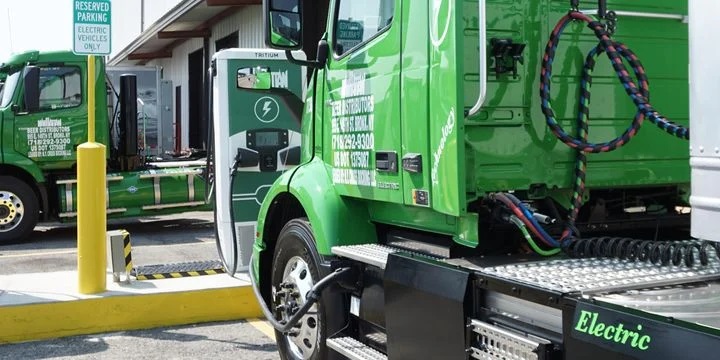
Converting America’s gas- and diesel-powered trucking fleets to electric has been a big goal for years now, but making the leap has been challenging. In fact, these challenges are outlined succinctly by the American Transportation Research Institute in the non-profit’s December 6th report. This report outlines three major factors that stand in the way of transitioning from fossil fuels to electric power, and these three issues aren’t ones that can be solved overnight or by throwing money at the situation.
America’s Electrical Grid
The supply of electricity and the health of America’s electrical grid are some of the top issues facing those wishing to make the conversion from gas or diesel to electric. Electrifying truck components means that these components, including engines, will require electricity from charging sources.
Regardless of whether charging takes place at a dedicated station, a fuel depot, a rest stop or a fleet’s maintenance shop, the electricity has to be available without risking damage to connected parts of a regional grid. Right now, the nation simply doesn’t have the capacity to generate power for the entire country’s trucks while also maintaining current output for everything else.
Truck Production Capacity
Another big challenge in electrifying truck components or switching from a traditional internal combustion engine to a fully-electric engine is production. Although truck manufacturers are slowly investing in manufacturing for truck fleet electrification, America’s electrifying truck efforts are not where they need to be to make a full conversion.
Currently, the demand doesn’t exist for electric trucks to the point where manufacturers are willing to drop traditional truck manufacturing altogether. It’s a difficult balance to be sure and one that will eventually reach a tipping point. Until that happens, however, the production side of things simply isn’t ready to pump out electric trucks fast enough to replace those on the road today.
Recharging Time Requirements
Lastly, the report issued by the American Transportation Research Institute cites the recharging requirements of commercial trucks as a challenge. Even electric commuter vehicles can take hours to charge depending on how much power a battery requires at the time of charging, and commercial trucks could take even longer to go from completely drained to full. This kind of downtime doesn’t lend itself to the quick turnaround times needed in today’s fast-paced world of logistics, and until charging speeds can be hastened, America’s electrifying truck problem seems like it will linger.
Additional credit: https://www.truckinginfo.com/10188555/3-critical-challenges-to-electrifying-americas-truck-fleet


